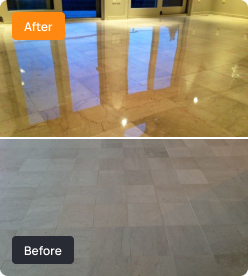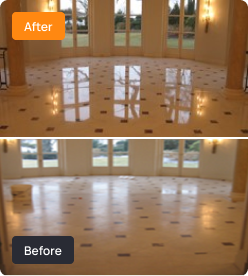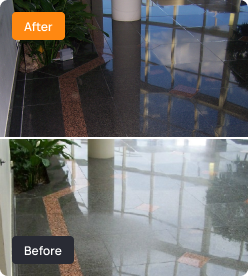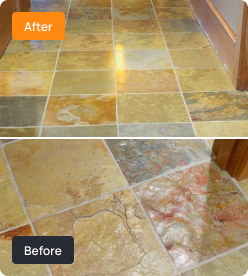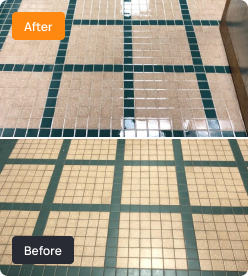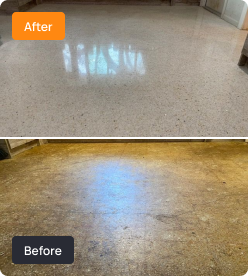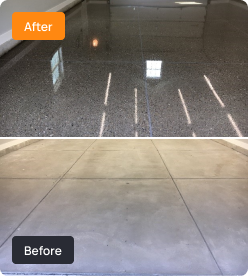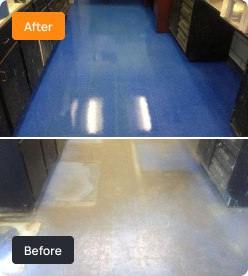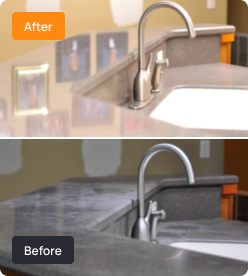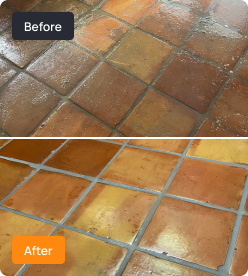Should You Think Twice Before Using Bleach on Grout?
Bleach, known for its distinctive white bottle and intense aroma, has been a reliable household staple for many years. It’s widely recognized for solving various cleaning issues, from stained laundry to bathroom mildew. The immediate whitening effect bleach provides often gives a satisfying sense of cleanliness, though this can sometimes be misleading. When cleaning specific […]
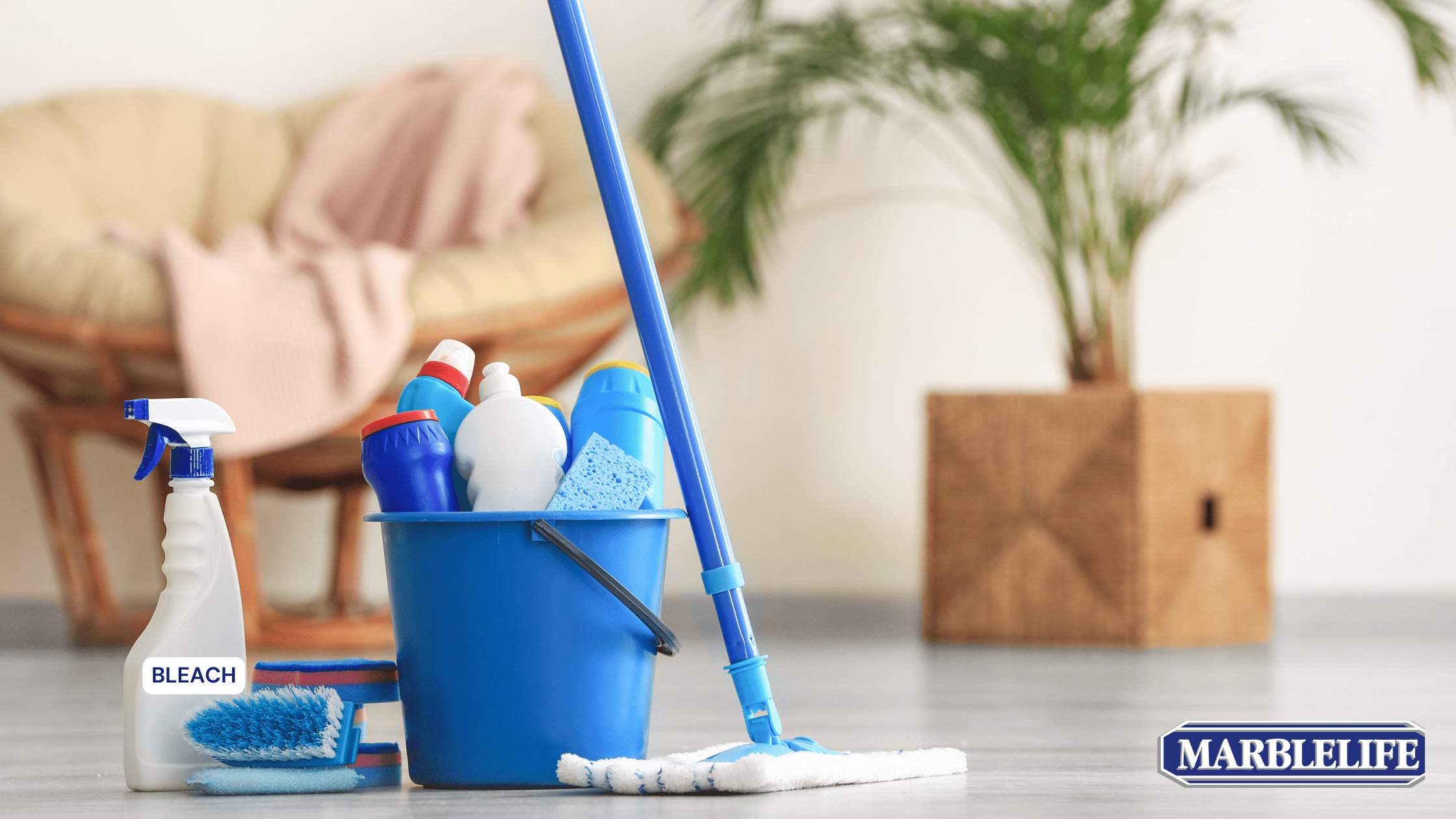

Bleach, known for its distinctive white bottle and intense aroma, has been a reliable household staple for many years. It’s widely recognized for solving various cleaning issues, from stained laundry to bathroom mildew. The immediate whitening effect bleach provides often gives a satisfying sense of cleanliness, though this can sometimes be misleading.
When cleaning specific surfaces like grout, it’s essential to understand that popularity doesn’t necessarily equate to effectiveness. Although bleach can offer a quick solution for cleaning grout, it might not be the best choice for maintaining your grout’s long-term cleanliness and integrity. Looking beyond the immediate results is crucial to comprehend the potential impact our choices have on the surfaces we are cleaning.
What is grout, and Why is Cleaning it a Challenge?
Grout is the binding element that holds tiles together, providing stability and preventing moisture and debris from seeping through. Its composition varies, bringing distinct challenges in cleaning and maintenance for each type.
Despite these variations, all grout types are susceptible to accumulating dirt, bacteria, and moisture. Without proper cleaning, these elements can compromise the grout’s appearance and durability over time. Therefore, it’s essential to recognize the specific requirements of your grout type and adopt a meticulous approach to its cleaning and maintenance, thus ensuring its longevity.
Cementitious Grout:
Cementitious grout, a blend of cement, sand, and water, is popular for home projects due to its affordability. However, it has notable drawbacks: its porous nature and the availability of two varieties. As a porous material, it is prone to absorbing water, leading to potential staining, mold growth, and unsightly appearances. The two varieties are sanded and unsanded grout. Sanded grout, known for its durability, is ideal for wider gaps between tiles. In contrast, with its smoother finish, unsanded grout is better suited for narrower tile gaps.
Epoxy Grout:
Epoxy grout, consisting of epoxy resins and pigments, offers significantly more durability than its cement-based counterpart. Favored for high-traffic areas, it excels in resisting stains and mold. However, this enhanced performance is more expensive than other grout types.
Furan Grout:
Distinguished from traditional epoxy grouts, Furan grout is composed of furfuryl alcohol resins, lending it exceptional durability. Its high resistance to stains, mold, and harsh chemicals makes it an excellent choice for demanding environments. While commonly employed in industrial settings like chemical and food processing plants, Furan grout’s robustness has also made it a sought-after option for specific residential applications, such as in luxury pools and gourmet kitchens.
The Chemical Composition of Bleach
Bleach, a potent cleaning agent, effectively removes stains from various surfaces. Its primary ingredient, sodium hypochlorite, is a chemical that interacts with and destroys other molecules. It targets chromophores, the molecules responsible for color, breaking them down until they no longer reflect light. This action is what causes bleach to render objects white or colorless.
Effects on Grout:
The long-term use of bleach on grout can lead to several adverse effects. As an oxidizing agent, bleach can weaken the cement binding the grout, reducing its durability. Additionally, it can cause discoloration, leading to an uneven and blotchy appearance. Another concern is that bleach may damage the sealant that shields grout from moisture, thus making it more vulnerable to environmental factors.
Health and Environmental Concerns:
Bleach emits strong fumes during use, which can negatively impact indoor air quality and cause respiratory issues. Its residues, often tricky to remove altogether, can irritate the skin upon contact. Furthermore, bleach poses environmental risks; entering waterways can be detrimental to aquatic life, harming or even killing organisms in the water.
Alternatives to Bleach for Cleaning Grout
Seeking alternatives to bleach for grout cleaning can yield safer and more enduring results. Here’s why exploring different solutions is beneficial:
Targeted Formulation: Specialized grout-cleaning products are formulated to address their unique composition, ensuring effective cleaning without accidental damage.
Bypassing Generic Pitfalls: Generic or all-purpose cleaners may not meet the specific grout requirements, leading to less effective cleaning or damage.
Bleach’s effectiveness is not constant; it diminishes over time, especially under light or UV exposure. This inconsistent effect can lead to variable cleaning results, depending on how long the product has been stored, such as under a kitchen cabinet.
A critical consideration is that the need for a strong cleaner like bleach often indicates underlying issues. For instance, persistent mold and mildew stains suggest a moist environment conducive to mold growth. Addressing this might involve enhancing airflow, adjusting the shower floor for better water drainage, or installing a water softener. These solutions, however, can be costly or require extensive remodeling.
MARBLELIFE’s MOLD AND MILDEW STAIN REMOVER, specifically formulated to tackle the black stains left by mold, offers an effective solution without extensive alterations.
MARBLELIFE’s expertise extends to restoring numerous showers annually. Our craftsmen efficiently eliminate mold and mildew issues. After cleaning, we recommend using a product like MARBLELIFE GROUT SEAL, a standard penetrating sealer, to minimize mold infiltration into the grout, keeping it on the surface where it is easier to manage.
MARBLELIFE’s Expertise in Grout Care Solutions
MARBLELIFE has been at the forefront of grout care for over three decades, leading the way with our extensive experience and deep understanding of grout maintenance. Our comprehensive range of products is a testament to our years of research, innovation, and unwavering commitment to excellence.
- MARBLELIFE MAXOUT deep grout cleaner: Expertly designed to cleanse open grout lines thoroughly, this cleaner removes dirt, debris, and oil. It prepares the surface impeccably for sealing with our MARBLELIFE Grout Sealer.
- MARBLELIFE Mold & Mildew Stain Remover: This powerful product efficiently eradicates the stubborn black stains left behind by mold, streamlining the cleaning process.
- MARBLELIFE Grout Sealer: Our sealer offers superior protection against stains and wear, ensuring your grout remains pristine. It acts as a barrier to shield against external pollutants, thereby prolonging the life and appearance of your grout.
- MARBLELIFE Tile & Grout Cleaner: Specifically crafted for grout cleaning, this non-acidic solution gently yet effectively removes dirt and stains. Its formulation ensures that the aesthetic quality of your grout is maintained, making it a safe choice for all surfaces.
FREE Consultation AVAILABLE, Maintenance Next
If you’re uncertain about the best approach for your specific grout care needs, MARBLELIFE offers a FREE CONSULTATION. Our experts will help you understand the underlying issues and develop a tailored strategy to tackle even the most challenging grout stains.
With expert guidance from MARBLELIFE, you can confidently select and use the appropriate MARBLELIFE products for your routine maintenance. This approach ensures your grout’s ongoing health and aesthetic appeal, preserving its beauty and functionality over time.


